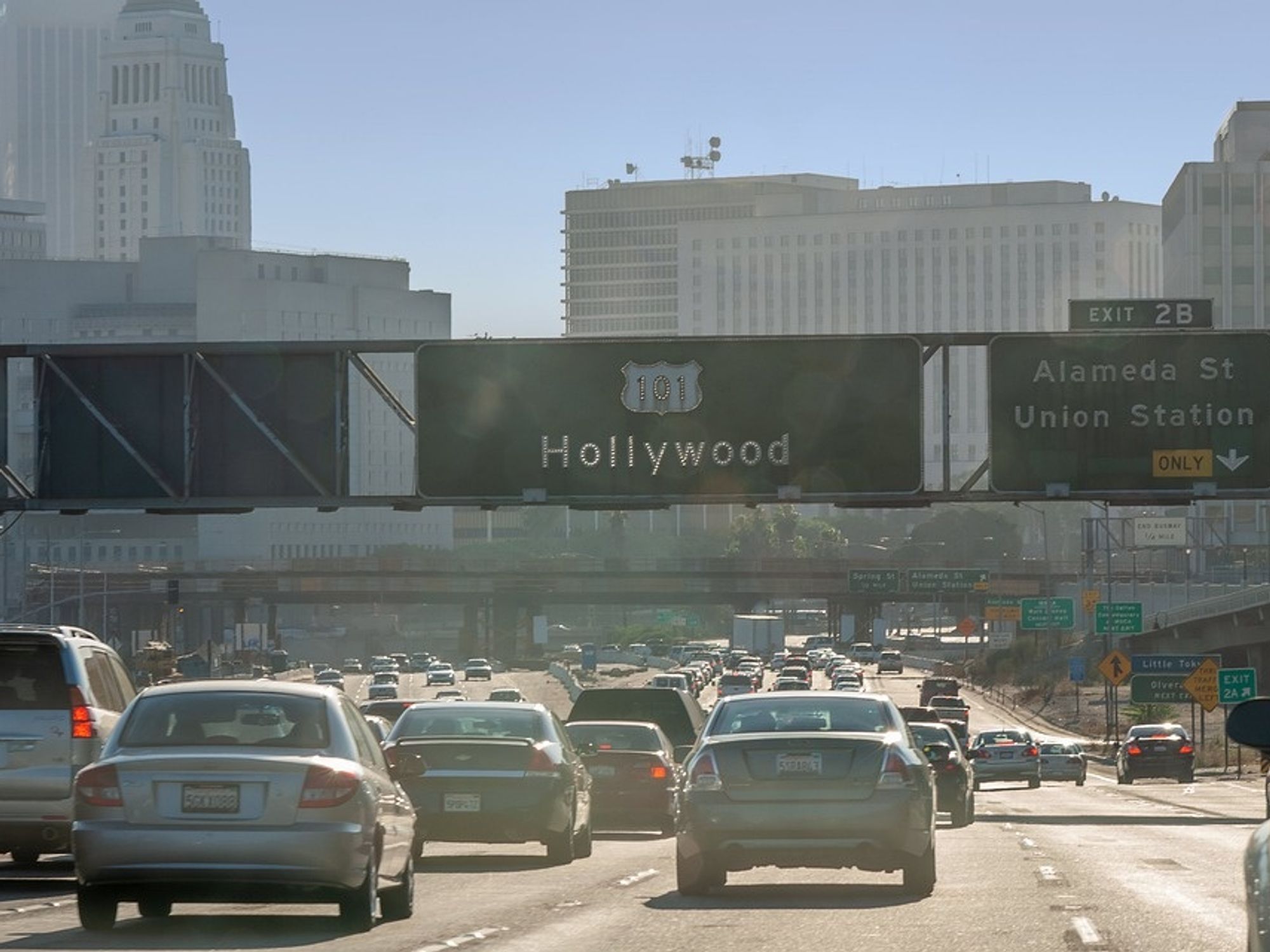Column: Going Carless in L.A. was Great. Until the Coronavirus
Ben Bergman is the newsroom's senior finance reporter. Previously he was a senior business reporter and host at KPCC, a senior producer at Gimlet Media, a producer at NPR's Morning Edition, and produced two investigative documentaries for KCET. He has been a frequent on-air contributor to business coverage on NPR and Marketplace and has written for The New York Times and Columbia Journalism Review. Ben was a 2017-2018 Knight-Bagehot Fellow in Economic and Business Journalism at Columbia Business School. In his free time, he enjoys skiing, playing poker, and cheering on The Seattle Seahawks.

When I moved back to Los Angeles from New York a year ago, I decided to try forsaking what has long been considered to be as much a part of L.A. life as the sunshine and celebrities. I would go without a car.
As recently as four years it seemed to be an unthinkable and perhaps even heroic undertaking. In 2016, someone made a two-hour documentary about "surviving" carless L.A. But since then, ridesharing went mainstream and scooters became ubiquitous on city streets. I'd also gotten used to riding the train in New York and it helped that I was living in walkable and transit-accessible downtown L.A. I would save some money and reduce my carbon footprint. As an added bonus, being carless in L.A. always made for a great conversation topic.
Sure, there were times when I wished I could hop in the car and stock up at Trader Joe's or months when I racked up a lot of Uber bills because my job took me to locations that were hard to get to via transit. But overall, I missed driving less than I thought.
But like so many other things, the calculus changed with the novel coronavirus. My carless lifestyle no longer seems so great and now I feel stranded.
Public transportation is still operational but I'm avoiding it because experts agree riders are at an increased risk of exposure to germs. I used to subscribe to Metro Bike Share to get around downtown, but cancelled my pass after touching bike handles didn't seem like a great idea. Riding a Bird or Lime scooter? No thanks. I still use Uber and Lyft occasionally but sharing a car with a stranger has become much less appealing. And those services rightly put an end their carpooling options, so the price has gone up. I tried to sign-up for BlueLA, an electric car sharing service that launched in 2018, but learned that the service has been suspended.

When I've lamented about the lack of a car some people have quite reasonably asked since most everything is closed, where would I go? The answer is I would love to go hiking or run on the beach, or shop for groceries and household essentials, which I'm consuming at a much faster pace than before. Even escaping my little apartment to drive around L.A.'s eerily quiet streets listening to music sounds nice.
Before all this, owning a car and with all its associated costs and hassles seemed to be becoming obsolete. Now all the sudden sharing – carsharing, ridesharing, bikesharing – has lost its shine. I hope this is just a temporary setback because I think the sharing economy has a lot of benefits, but now I find myself dreaming of owning a car again.
My sister, who's been carless for years living in Brooklyn, is doing the same thing. She and her husband are desperate for a way to get their kids out of the city. But she's having trouble finding a dealer who's open, a stark illustration of how our economy is at a standstill.
One of the few silver linings is that it will probably be a great time to buy once businesses reopen if you have the means to do so. Automakers are already starting to offer big deals, financing is cheap, and gas prices are at historic lows.
Ben Bergman is dot.LA's senior reporter covering venture capital.
Ben Bergman is the newsroom's senior finance reporter. Previously he was a senior business reporter and host at KPCC, a senior producer at Gimlet Media, a producer at NPR's Morning Edition, and produced two investigative documentaries for KCET. He has been a frequent on-air contributor to business coverage on NPR and Marketplace and has written for The New York Times and Columbia Journalism Review. Ben was a 2017-2018 Knight-Bagehot Fellow in Economic and Business Journalism at Columbia Business School. In his free time, he enjoys skiing, playing poker, and cheering on The Seattle Seahawks.



 Image Source: Revel
Image Source: Revel
